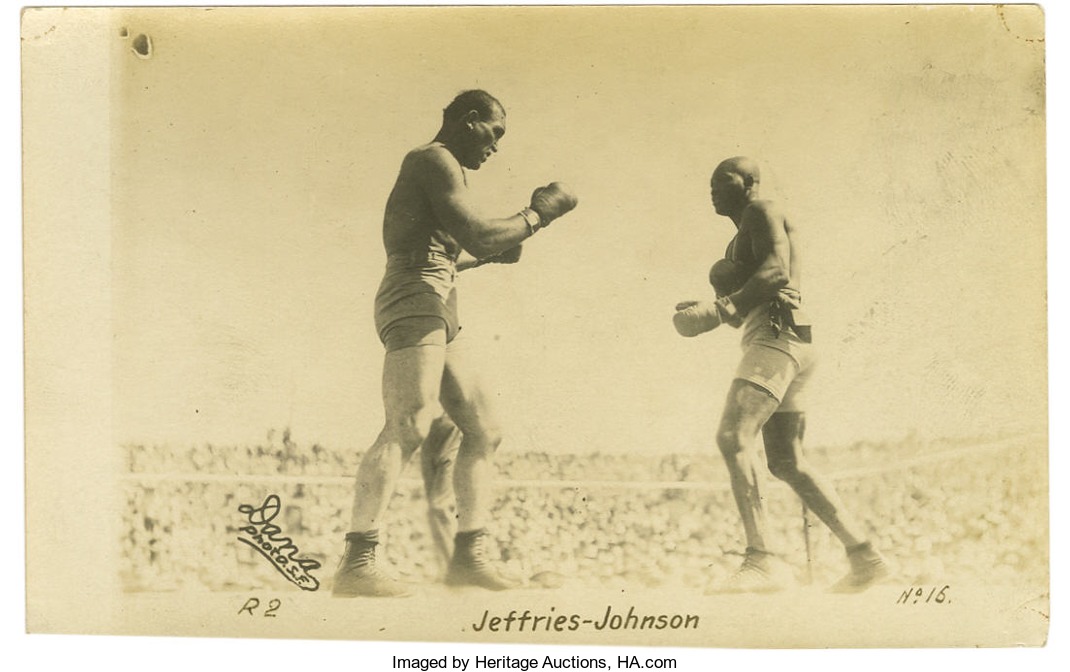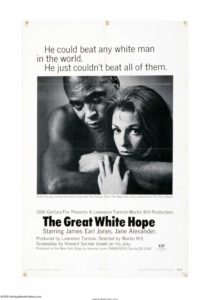
By Jim O’Neal
On the Fourth of July in 1910, the sleepy little frontier town of Reno, Nev., became the setting for a dramatic sporting event that riveted the nation. “Reno Now Center of the Universe” read the headline in the Chicago Tribune. John Arthur “Jack” Johnson, the first black boxing heavyweight champion of the world, was going to fight James Jackson Jeffries for the title.
Jim “The Boilermaker” Jeffries had retired as undefeated champion six years earlier and he had been lured back into the ring to prove that the Johnson championship was a fluke and white boxers were still the best in the world. Emotions were running high and Jeffries was being billed as the “Great White Hope” to restore white pride.
What many didn’t know was that Jeffries was about 130 pounds overweight despite working on his alfalfa farm, and Johnson was the epitome of a world-class athlete in prime condition. There was so much hype that it was estimated over $3 million would be wagered.

The stage for the bout had been set two years earlier when Johnson had defeated Tommy Burns in Australia, prompting calls for Jeffries to restore the indignity suffered by the white race. Since then, Johnson had further alienated whites with his flashy manner, strutting confidence, lavish spending and cavorting with women. Novelist and journalist Jack London wrote several articles trying to coach Jeffries out of retirement with a rallying cry of “Jeff, it’s up to you!”
Some 20,000 people crowded into the arena for “The Fight of the Century” and most of them were Jeffries fans. When Johnson entered the ring first (it was a superstition), he was wearing a gray business suit over his boxing trunks, with an aide shielding him from the blinding 110-degree sun with a 5-foot-round paper shade. According to The New York Times the crowd gasped when he stripped to his fighting attire.
Tex Rickard, the legendary boxing promoter, ended up being the referee after failing to recruit President William Howard Taft or writer Sir Arthur Conan Doyle. In the end, it mattered not. Johnson scored a 15-round TKO that some say was over as early as Round 4 and the balance was just showboating punishment.
Later, Johnson was sentenced to jail by Judge Kenesaw Mountain Landis (future baseball commissioner) for violations of the Mann Act (“transporting women across state lines for immoral purposes”). He served a year or so and resumed his lifestyle as before, unrepentant or apologetic.
A fictionalized version of his life was the 1970 film The Great White Hope, with James Earl Jones and Jane Alexander, both of whom were nominated for Oscars.
 Intelligent Collector blogger JIM O’NEAL is an avid collector and history buff. He is President and CEO of Frito-Lay International [retired] and earlier served as Chairman and CEO of PepsiCo Restaurants International [KFC Pizza Hut and Taco Bell].
Intelligent Collector blogger JIM O’NEAL is an avid collector and history buff. He is President and CEO of Frito-Lay International [retired] and earlier served as Chairman and CEO of PepsiCo Restaurants International [KFC Pizza Hut and Taco Bell].
